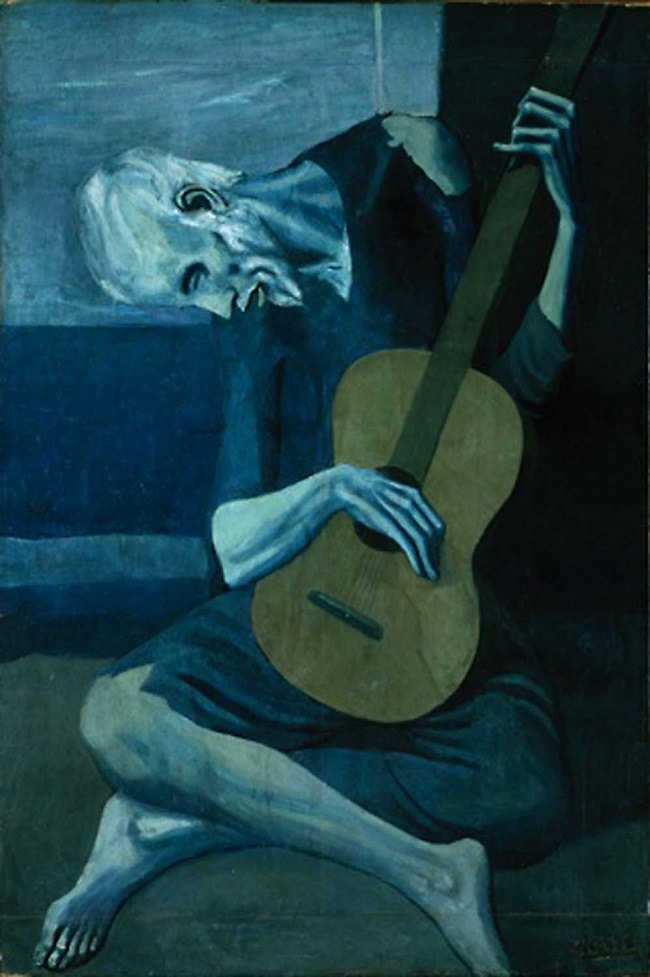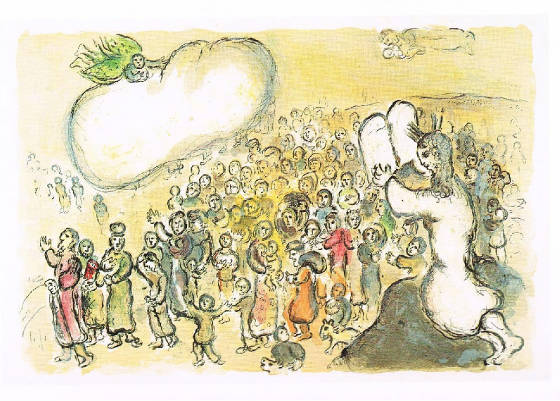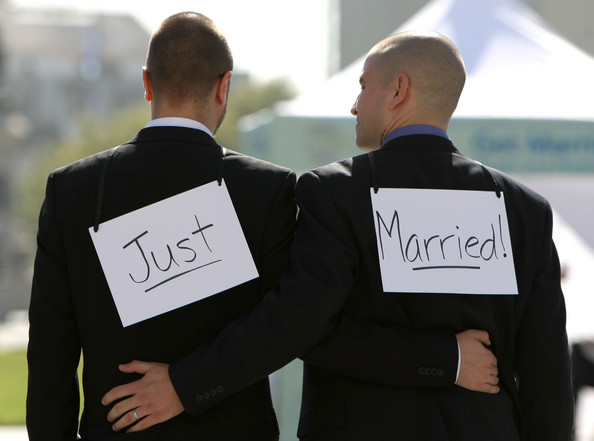|
|
 |
|
Leave Blog Feedback! View Blog Feedback!
|
 |
|
|
Wednesday, October 29, 2014
Sarah The Art Dealer

Sarah is an art dealer. And by 'art dealer,' I don't mean that she
represents local artists or has a booth at festivals that smell of kettle corn and pulled pork. I mean Sarah deals in ART.
Stephanie and I met her last week in- of all places- a Dallas mall, when I noticed a few paintings hanging in a gallery. Figuring
we might see an interesting piece or two, we ducked in, and my eye almost immediately caught a piece depicting my favorite
story from the Old Testament:  It's a picture from the Exodus done by someone I'd never heard of named Marc Chagall, and I was immediately
in love. Unfortunately, my jaw hit the floor as Sarah the art dealer told us how much it cost: $10,000. As it turned out, this was no ordinary mall art gallery, and the piece I had fallen in love with was actually one
of their bargain bin selections. There were other pieces of art by names I HAD heard of: People
like Pablo Picasso, and
People like Andy Warhol, and
People like Salvador
Dali.
Those pieces had price tags as high as $180,000, which off the top of my head is enough money to purchase
a nice home in Ashland, two brand new vehicles, and still have enough left over for that Chagall 'Exodus' piece. It was hardly
what we expected from a Dallas mall. Of course, the precious art that was in this gallery were
far, FAR out of the range of what Stephanie and I could even think about talking about purchasing, and if that wasn't apparent
to Sarah when we walked in, it was once we told her that we were respectively employeed at a church and a liberal arts college.
When she found out that we were no one near in the ballpark of being able to be customers, I assumed that Sarah would politely
excuse herself and go do something that could make her some money for the day.
My assumption
was wrong.
Sarah spent close to an hour going through the gallery with Stephanie and I, explaining
each artist, pointing out the subtle nuances of what made each piece truly beautiful, and answering each every stupid question
I could come up with. It was delightful, even for someone as ignorant in art as me, and for Stephanie (whose degree is in
art and art history, and who knew the second she saw the Chagall 'Exodus' what type of place we were in), it was something
she'll never forget. Sarah the art dealer was kind; Sarah the art dealer was gracious. Sarah the art dealer went out of her way to make sure that two nobodies from a small town in Missouri
felt welcome. And Sarah the art dealer did all that knowing full well that she would receive nothing in return. We could
never be customers; we could never give Sarah the art dealer anything. But that didn't matter to her - she treated us as if
we had all the money in the world.
***
One day the apostle Paul preached a sermon to a group of people who were very, very religious. They were so religious, in fact,
that on top of the gods and goddesses they regularly prayed to and worshipped, they built idol to an 'Unknown God,' a deity
they assumed was out there but that they were ignorant of. To these idols, the people devoted time and money; they made sure
the idols were tip-top shape, and they offered food and grain and incense as offerings to make sure the gods were well take
care of. Paul explained to them that their view of the divine was a bit off, for a simple reason: if the gods they were worshipping
were really real, they wouldn't need to be taken care of. They wouldn't need offerings or prayers; they wouldn't need their
idols to be looked after and preserved.
'The Creator of heaven and earth,' Paul explained, 'doesn't live in man-made
temples. Human hands cannot serve His needs, because He doesn't have any needs.'
The fact is that the God of this
universe doesn't need anything from you or I. He doesn't need us to defend Him; He doesn't need us to worship Him; He doesn't
need us to pray to Him. He doesn't need us to know Him or make Him known or even believe in Him. If God is truly God, then
He is so far above us that there's no way that we could ever fulfill His 'needs.' He exists outside of what we know as time
and space and reality, and as a result, we could never offer Him anything that would make Him stand up and be impressed.
Simply put, God doesn't need us.
And yet, Paul continued in his sermon, the God who doesn't need us to
serve Him has chosen to show us kindness and mercy and love. 'He Himself gives life and breath to everything, and
he satisfies all of our needs,' the apostle preached. 'And He isn't far from any of us - in Him, we live and move and exist.'
We have nothing to offer God. Because of that,
God has no reason to offer
us anything. And yet,
God has provided for us all that we could ever need.
That's good news.
***
One day, Jesus encountered a man who couldn't walk. The only hope that man had was in a piece of Jewish superstition that
revolved around a particular pool of water that supposedly had healing properties. Unfortunately, the man's inability to walk
also inhibited his ability to get into the that pool of water, and no one he encountered in his everyday life cared enough
to help him. As harsh as it might sound, it's easy to see why: a man who can't walk can't work, and therefore would have had
nothing to offer in return to whoever helped him into the pool. Caring for others
is easy when they have something to offer you in return. But,
Caring for others is nearly impossible when they don't.
Because of that,
People don't often care about those who have nothing to offer
them. Jesus was different. Jesus reached out to the man and healed him, and in
doing so showed that even if no one else cared for the man, that the God who had created Him - the God who could never be
served by human hands - did. And in doing so, Jesus showed in action what He had been teaching all along: that God loves everyone,
even the most unlovable in society.
I was inspired by the inclusive, unconditional kindness of Sarah the art dealer.
We had nothing to offer her, and she didn't care. In the hour we spent looking at and talking about art we could never afford,
the good news of Christ shone through her kindness. Truth be told, I hope that I can be more like her.
By that,
of course, I mean I hope that I can be more like Jesus, who showed us a God who chooses kindness and care for those who could
never offer Him anything in return. And when that's a goal that we all shoot for, then we become the church that God has always
wanted us to be; a church that cares for everyone, even those who have nothing to offer us in return. And when we do that,
we become a church that has something for the world around us:
Good news.
Monday, October 20, 2014
Roots, Sexuality, and Purpose

They were outcasts and misfits. Ostracized from the religious insitutions they had given their lives
to, they found themselves at a crossroads - did they need a larger theological body to oversee their ministries? Or could
they, with the guidance of the Holy Spirit and a commitment to the Holy Scriptures, go it alone? Looking back, the answer
seems obvious. But at the time, it was a difficult question, and to decide to go it alone was a path filled with hurdles,
pitfalls, and difficulties.
As I sit writing this, I do so in large part because of the paths forged by men like
Alexander Campbell and Barton Stone, whose influence roughly 200 years ago caused the formation of what would come to be called
the 'Restoration Movement.' While the Reformation of Luther, Calvin, and others had sought to fix what was wrong in the organized
church, Campbell and Stone took another tact altogether. Instead of even worrying about what others were doing, they simply
wanted to go back to the principles of the original, ancient Christian Church found in the pages of the New Testament. Doing
so bred a loose set of beliefs and statements that perfectly encapsulated who they wanted to be as free, independently thinking
Christians. 'We have no Creed but Christ!' they said, rejecting set theological mantras
that everyone had to adhere to for church membership. 'Where the bible speaks, we'll speak,
and where the bible is silent, we'll be silent!' they proclaimed, humbly admitting that their humanity could get in the
way of the divine message that Jesus wanted them to accept. 'We aren't the only Christians,
but we are Christians only!' they asserted, refusing to pass judgment on other traditions and Christian groups, instead
focusing on their own faith and allowing others to focus on theirs. The Restoration Movement
wasn't perfect; far from it. And, as all groups tend to do, eventually it splintered off into other groups. Some formed denominations,
helping lay the groundwork for United Church of Christ and the Disciples of Christ; others chose to remain independent, with
the Independent Christian Churches and Churches of Christ coming along as a result. There were disputes and arguments, dark
days and difficult moments, but through the imperfect but sincere desires of those who simply wanted to be Christians, churches
like Ashland Christian Church came to be. *** On the one hand, to
many Christians, the bible seems so clear on homosexuality. There aren't many passages on the subject, but a cursory reading
of both the Old Testament Law and New Testament epistles shows that intimate relationships between members of the same sex were frowned upon. And while Jesus
didn't explicitly mention homosexuality, His definition of divinely approved relationships seemed to rule them out. It seems so simple: a bible believing, Spirit-filled Christian should conclude that
gay Christians are an oxymoron, for the same reason that 'adulterous' Christians or 'greedy' Christians are an oxymoron. Sin
is sin, and we aren't to be defined by our sin, but, rather, our commitment to to the teachings of Jesus.
On the
other hand, to other Christians, the bible seems so unclear about homosexuality. There aren't many passages on the subject,
but a deeper reading of the context of both the Old Testament Law and New Testament epistles shows that the cultures and societies
that the Scriptures were written in and to were vastly different than our own. As a result, each time that homosexuality is
mentioned, it's in conjunction with other sins like prostitution, rape, and idolatry. The concept of loving relationships between members of the same gender is simply not a concept that was on
the radar of the biblical writers, which explains why Jesus never mentioned them. It seems so simple: with cultural differences
and a lack of clear direction by the one whose example we're to follow, it's impossible to say with any clarity that one's sexual orientation is or
is not sinful. And just as we've moved on from ancient social customs like slavery and women being seen as immodest because of their jewelry and braided hair, accepting gay Christians is a fundamental part of loving one's neighbor in 2014,
and doing so is a natural outpouring of our commitment to the teachings of Jesus. *** The
purpose of Christianity is simple: life. Jesus came to show us an abundant life that will last for eternity, and those who believe in His message are born again to a new life, having passed from a death-like state of existence to a vibrant, thriving aliveness with God at the center. A life with God at the center is a life with love at the center. But what happens when we disagree on just how we should live
this life? What happens when two sides of an argument reach a stalemate, when two groups dig in, Scriptures, ideologies and
theologies in hand, and can find no common ground? How can a life of love exist when we simply can't agree on what direction
God wants us to go in?
This is a question that is far from new. In the ancient, original
church that the Restoration Movement wanted to emulate, there were divisions between Jews and Gentiles, those who followed
different apostles, and people from different religious and social traditions. The early church was a church of fishermen
and Pharisees, of eunuchs and Roman Centurions, of murderers and saints. It was a church that could be compared to a body; while they were all individual members of one whole, each individual as as different as a foot is from a
hand or an ear is from an eye. And through the writings of the apostle Paul, we find that they didn't so much settle disagreements
as they agreed to disagree. From time to time, they agreed to allow each person to answer to God alone, and they prioritized love and deference to one another over their own individual
desires to be right. In other words, they decided to have no creed but Christ; they decided to
speak where the Scriptures spoke, and stay silent where they were silent; and they declared that while they were only Christians,
that they were far from the only Christians.
It is possible to believe that homosexuality is a sin and be fully committed to Christ, filled with the Spirit of God,
and a careful student of the Scriptures. And, It is possible to believe that homosexuality is not a sin and be fully committed to Christ,
filled with the Spirit of God, and a careful student of the Scriptures. In the ancient church,
there were disagreements; they chose love. In the roots of the Restoration Movement, there were disagreements; they chose love. In today's church, there are disagreements; we can choose love. I'm not interested in swaying your viewpoint one way or the other on homosexuality; your opinions
are between you and the God that you worship and serve. What I'm interested in is the church being a place where everyone
- even outcasts and misfits who have been ostracized from other religious institutions - is welcome to experience the life-giving
gospel of Christ and the freely offered gift of the Holy Spirit. I'm interested in a church where the table of communion and
the waters of baptism are welcome to everyone, and where differences of opinion aren't a barrier to real fellowship. I'm interested
in church that allows people to ask questions, allows people to be themselves with their own uniqueness coming from their
own hearts and minds, and simply points people to the God who made them, loves them, and wants to spend eternity with them.
I'm interested in the church I read about in the New Testament and that men like Alexander Campbell and Barton Stone dared
to dream about.
Ashland Christian Church may not always be that church. But I can say one
thing for sure: that's the church we are trying to be, and no matter who you are, we will always welcome you on that journey
with us.
|
|
|
 |
|
|
 |
|
|
 |
|
|
|
|
|
|
 |

